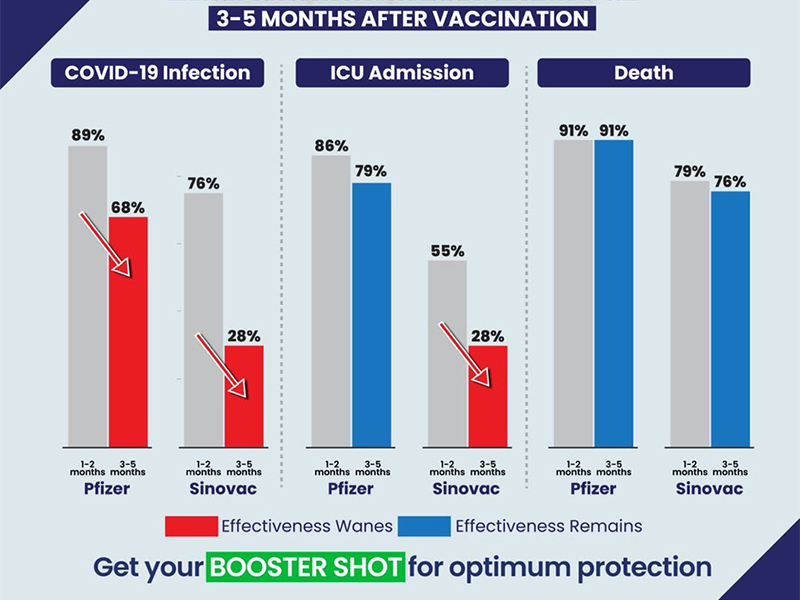According to RECoVaM, the two-dose Sinovac vaccine only had an effectiveness rate of 28% against both COVID-19 infection and intensive care unit (ICU) admission after three to five months. In comparison, Pfizer had an effectiveness of 68% and 79% respectively after the same period. The study also revealed an alarming gap between the two vaccines in regards to death cases. Meanwhile, recent data released by the Crisis Preparedness and Response Centre (CPRC) also showed that the majority of vaccinated individuals that have been administered into Hospital Sungai Buloh under Category 4 and Category 5 classification are Sinovac recipients. This major discrepancy in the effectiveness rate is cited by Health Minister Khairy Jamaluddin as the reason why those who got Sinovac are eligible for boosters after only three months, compared to six months for Pfizer recipients. While it’s good that we now have our own research regarding the effectiveness of our vaccine, Thailand had already discovered back in July that Sinovac’s efficacy halves every 40 days.
— Khairy Jamaluddin 🇲🇾🌺 (@Khairykj) November 20, 2021 We had previously reported that the government is mulling on making booster shots mandatory for one to be considered fully vaccinated after it was revealed that 40% of those offered booster doses do not show up for their appointment. At the moment, only the Pfizer-BioNTech vaccine is being offered by the authorities through the National COVID-19 Immunisation Programme as the booster dose for both Pfizer and Sinovac recipients. While the government has provided conditional approval for the usage of the Sinovac vaccine as a booster dose, further details regarding its rollout have yet to be announced. It is also possible that one may have to pay for it given how Pharmaniaga has begun distributing the vaccine into the private market [pdf]. (Source: JKJAV.)
